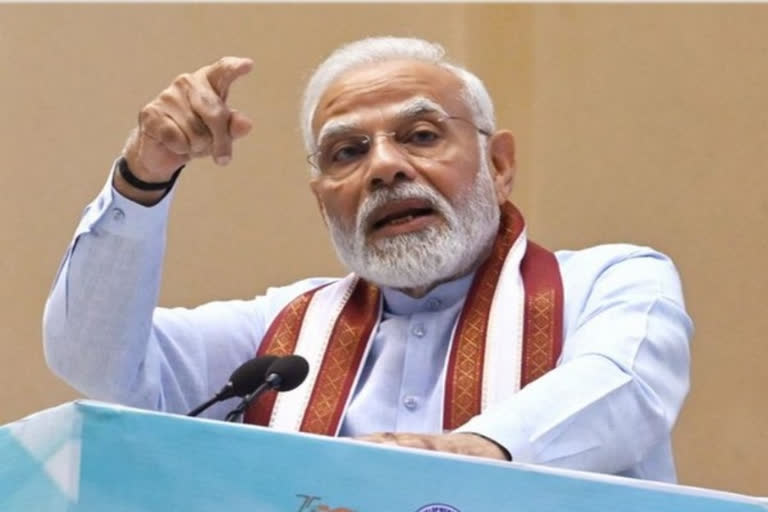Thiruvananthapuram:In an open rebuff to the BJP-led central government, the Kerala Pradesh Congress Committee (KPCC) on Thursday screened the controversial BBC documentary -- "India: The Modi Question" -- at the Shanghumugham beach in Thiruvananthapuram for the general public.
The screening of the documentary on the 2002 Gujarat riots when Prime Minister Narendra Modi helmed the western State was first shown at the KPCC headquarters here for its staff and party workers, KPCC general secretary G S Babu said. "We received a positive response to the screening from the general public. Lots of people turned up to see it. In view of the positive response, we will show it across the State at various places," Babu said.
Also read: BBC documentary on 2002 Gujarat riots screened in several parts of Kerala; BJP Yuva Morcha holds protests
KPCC showed the introduction portion of the first part of the documentary and the entire second part at the screening, he said. He further said the response indicates that people want to know what is there in the documentary and what it is all about. Various wings of Congress have already screened the first part of documentary in several parts of the State. The Centre last week directed blocking of multiple YouTube videos and Twitter posts sharing links to the documentary.
The two-part BBC documentary, which claims it investigated certain aspects relating to the 2002 Gujarat riots when Narendra Modi was the Chief Minister of that State, has been trashed by the Ministry of External Affairs as a "propaganda piece" that lacked objectivity and reflected a "colonial mindset."
Also read: Kerala Guv questions timing of BBC documentary when India assumed G20 presidency
Pertinently, Thiruvananthapuram MP Shashi Tharoor while speaking to reporters in the city on Wednesday said India’s sovereignty was "not fragile" just because the BBC had come out with a contentious documentary. “The matter (Gujarat riots) is over. Can we move on to important things today”? Tharoor said, while adding: “Frankly, our sovereignty is not so fragile that a BBC documentary can undermine it and what is there in the documentary?”
